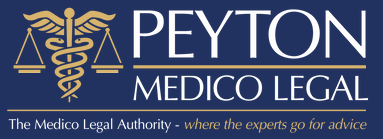

Since 2010, the Global Law Experts annual awards have been celebrating excellence, innovation and performance across the legal communities from around the world.
posted 2 months ago
Establishing a duty of care in most instances is straightforward. However, in the following two cases, there is a clear warning to professionals who offer advice on which a plaintiff relies, and then ends up with complications directly related to that advice.
The first case involves a lady who, after delivery, had to have stitches for repair in her vagina. A swab was placed in the area and not removed before she was discharged.
Several days later, she began to have pain and noticed a bad smell associated with a greenish discharge. She asked a relative who was a midwife if this was normal six days after delivery. She was told, without examination, that it possibly was and to wait four days until after the weekend when, if the smell, pain and discharge had not settled, she should seek advice. After three days, on the Sunday, the plaintiff had developed very high fever and sweats, and was admitted to hospital as an emergency. The retained swab was found and removed, and she required several days of intravenous antibiotics.
The plaintiff sued the hospital, and her relative was co-joined by the hospital because the claimant told them she had received the advice from her relative several days previous, when she did not have septicaemia.
The second case involves a plaintiff who fell down the stairs, injuring his thumb. He was seen at hospital, diagnosed as a rupture of his ulnar collateral ligament, and treated in plaster. He was not referred for specialist advice.
Later that evening, in a social setting, he asked a friend who was a doctor what he should do. He was told that the Accident & Emergency Department knew what they were doing, and there was no need for any other management.
After several weeks, this gentleman went to be seen privately. He was noted to have a total rupture of the ulnar collateral ligament, leading to an unstable thumb and requiring extensive surgery. In this case also, the doctor had proffered advice, although in a social setting, and was co-joined in the action.
This is a clear warning to any professional, not just in medicine, who gives advice in a social setting on which a plaintiff has relied, and because of or “but for” the flawed advice, the claimant did not receive proper management. A duty of care has been brought into existence and, if there is any negative consequence as a result of the advice, then the professional’s action also falls within the legal definition of negligence.
MDU figures for 2022 show that fewer than one in six actions in medical negligence actually succeed, with the vast majority failing on the grounds of causation. It must be remembered that subsequence is not the same as consequence.
Initial screening is, therefore, essential to manage client expectations at an early stage. This avoids unnecessary effort and costs for all concerned. Too many cases are taken to court with no chance of success. This is stressful for both the client and their legal adviser, and indeed for the medical personnel involved.
For fast and effective screening of all potential medical negligence cases, contact Peyton Medico Legal Services now on +44 (0)28 87724177 or email [email protected]
Author


No results available
Resetposted 9 hours ago
posted 9 hours ago
posted 9 hours ago
posted 9 hours ago
posted 9 hours ago
No results available
ResetSign up for the latest advisory briefings and news within Global Advisory Experts’ community, as well as a whole host of features, editorial and conference updates direct to your email inbox.
Naturally you can unsubscribe at any time.
Global Advisory Experts is dedicated to providing exceptional advisory services to clients around the world. With a vast network of highly skilled and experienced advisers, we are committed to delivering innovative and tailored solutions to meet the diverse needs of our clients in various jurisdictions.